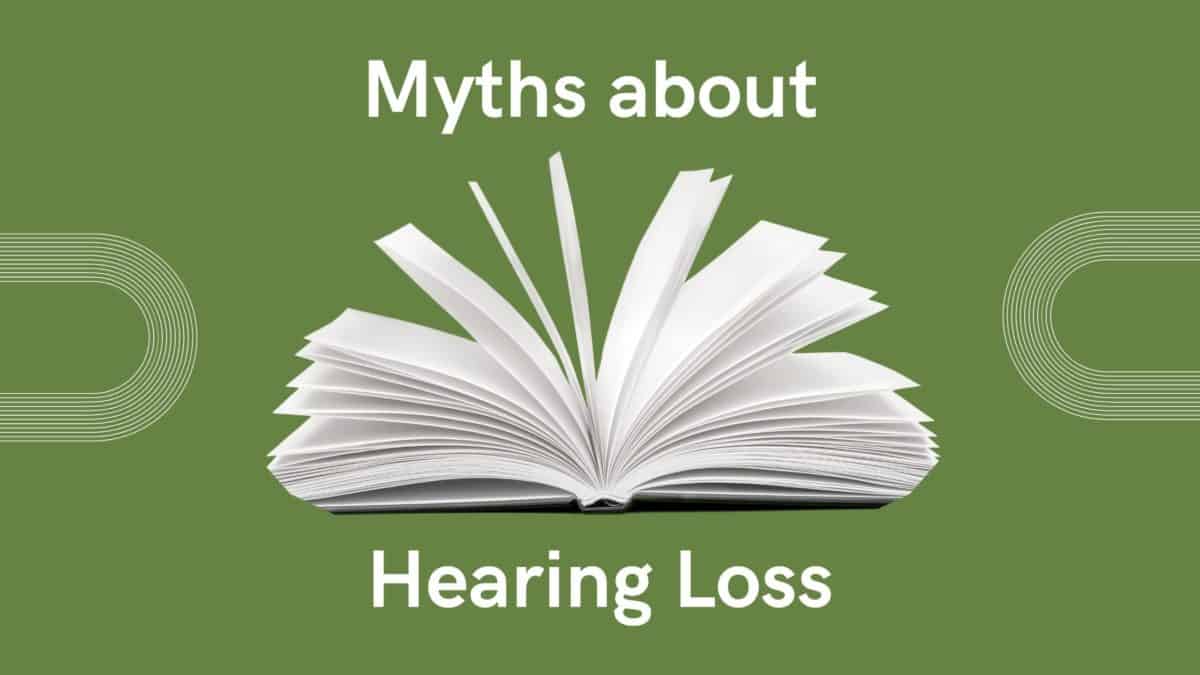- The Future of Hearing Health Research: Promising Breakthroughs - April 18, 2024
- Hearing Health in the Classroom: Strategies for Teachers and Students - April 6, 2024
- The Power of Bluetooth: A New Chapter in Hearing Aids - March 26, 2024
You know everything you need to know about hearing and hearing aids, right? Well, maybe you don’t. As with most subjects, there’s a lot of misinformation out there and we are here to set the record straight on a few outdated or completely exaggerated hearing loss myths you may have encountered.
Myth: Hearing aids are for old folks.
Reality: Actually, half of the population of people with impaired hearing are in their working years. And in fact, the age where we most typically see real declines in hearing health is lowering. Around 14 percent of people between 45 and 64 years of age have disabling hearing loss, in large part due to noise-induced hearing loss.
Today’s hearing aids help you stay current and technologically connected with advancements like bluetooth capability. They can be discreet and still retain incredible potency in enhancing your listening life.
Myth: Noises have to be extremely loud to cause hearing damage.
Reality: Speaking of noise-induced hearing loss, we don’t have to be setting off industry-grade fireworks in order to do real damage to our hearing. Any sounds over 85 decibels can do harm to our ears if our exposure time is long enough. For 85 decibels, or the equivalent of a noisy blender or busy restaurant, we can safely remain in that sound environment for up to eight hours.
As decibels (volume) increases, the amount of time we can safely spend in them decreases. A rock concert, for example, which can clock in at up to 120 decibels is actually only safe for your ears for about fifteen minutes. Yikes!
Myth: Talking loudly helps people with hearing loss.
Reality: Repeating your sentences louder helps people with hearing loss understand is a total myth. This is because hearing loss most frequently happens by loss of frequencies and not an overall lowering of volume. High frequency sounds like children’s voices or birdsong are the first to go. We tend to retain low frequency sounds like deep voices or bass tones longer.
When speaking to someone with hearing loss, speak slightly more slowly and clearly annunciate. Make sure you are facing them so they can see your lips move and facial expressions for helpful context. If they can’t understand you, try re-stating your thought using different words. The frequencies present in the words you choose may be particularly difficult, and choosing another set of words gives people with hearing loss more information to use.
Myth: Hearing aids will return your hearing to normal.
Reality: Hearing aids are a marvelous solution to address hearing loss, but they do not magically restore hearing back to the levels of your youth. Instead, hearing aids will amplify sounds and deliver that amplification straight to your ears so that listening becomes less effortful. Your happy brain receives more sound information to process. Today’s digital hearing aids can be programmed to reduce background and unnecessary noise and focus on delivering speech and other sounds you need to hear. This can make conversation and understanding dialogue exponentially easier.
Myth: I’ll know when I have hearing loss.
In fact, most people’s hearing loss is noticed first by friends and family. The signs of early hearing loss are incredibly subtle. As we lose frequencies, typically at the high end of the spectrum, our ability to discern speech is altered. It sounds as if everyone is mumbling, the volumes get cranked up on television sets and radios. Phone calls and conversations become difficult and frustrating.
Because we are such adaptable creatures, we are usually able to develop unconscious coping mechanisms. Maybe we avoid conversation, pretend to hear or let the phone calls go straight to voicemail. In many cases, we don’t even notice our behaviors have changed! Over time, and without intervention, this can lead to increased isolation and even depression.
Myth: I can live with hearing loss.
Reality: This isn’t really a myth, but it’s a statement that doesn’t give you many options. Sure, you can live with hearing loss. But the emotional and mental toll of hearing loss extends beyond missing a word here and there. Many people with hearing loss end up reporting feelings of isolation and depression as a result of their condition. Relationships suffer when connection ends and frustration takes over. You don’t have to live this way.
Schedule a hearing consultation today
Our team of hearing health professionals are ready to make your healthiest hearing a…reality. We’ll guide you through a simple hearing test and walk you through your results. From there, we’ll discuss possible options that will set you on the road to an enhanced listening life.

